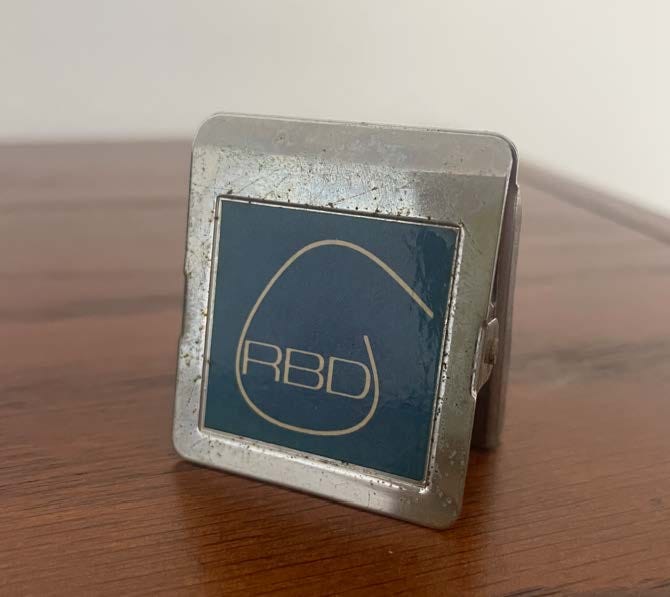Ghost Dance
Is bigger always better?
Relic: A Dragoco blotter clip
My Ghosts of the Fragrance Industry post touched a nerve. It generated a lot of comments and more than 5,200 views when I tagged it on LinkedIn. I’m not the only one who remembers the pre-consolidation era of fragrance.
Natalie Kuhles said “I clearly remember being at that speech that Geoff Webster did and I thought no way at the time. Boy was I wrong!”
Terry Miele: “I like to joke that no company I worked for in the past still exists”
Many commenters offered the names of additional ghosts. For example, Felton was acquired by Bush Boake Allen of Montvale, NJ around 1987. In 2000 Bush Boake Allen was acquired by IFF. In 2008, Symrise acquired Manheimer and Intercontinental Fragrances. That adds another four ghosts to the tally. On the upside, Robertet and Arylessence are still independent.
What are we to make of this massive consolidation of the fragrance industry? Here are a few thoughts:
Fond memories of corporate ghosts shouldn’t be written off as nostalgia. Smaller houses created a sense of camaraderie and teamwork, and that is what people recall decades later. Perfumers, marketers, R&D scientists, consumer researchers, bench chemists, sales people, folks in manufacturing—everyone talked to everyone. There were no silos. You got a sense of the whole business.
Camaraderie, whole-business awareness—how do you develop these in a WFH, office-optional environment? Younger employees have no idea what they’re missing. [But they get to work in their pajamas!—Ed.] [That doesn’t beat hanging out at the water cooler or going for drinks after work.]
Another relic: A Roure Bertrand Dupont blotter clip
Smaller houses were also nimble and willing to take commercial risks. When I joined the US division of Roure, we had a reputation at HQ in Paris of being the free-wheeling American cowboys. Corporate president Jean Amic was wise enough and confident enough to let us do our own, quite profitable thing. Following the merger with Givaudan, we got a taste of how glacially paced and rule-bound Swiss business style could be. Don’t get me wrong—Givaudan’s fragrance R&D was top notch. At our first joint meeting in Dübendorf, near Zurich, they presented their current research. It was impressive stuff, and we knew our corporate clients would love it. But we were puzzled. Why was Dübendorf keeping these programs hidden? Because, they said, “the results are too good to share.” We couldn’t believe our ears.
It seems to be a law of nature (or accounting) that the bigger a firm gets the more risk-averse it becomes. In pharmaceuticals, for example, high-risk innovation is the domain of startups. If they fail, they vanish. If they succeed, they get bought by a giant multinational. If this pattern becomes the norm in the fragrance industry, where will innovation come from?
Another thing missing from mega companies is a sense of local heritage and community. Hank Walter (1910 - 2000), longtime president and CEO of New York-based IFF, was born in Queens. He received undergraduate and law degrees from Columbia University, and later served as a trustee of the American Museum of Natural History and the Morgan Library & Museum. Walter’s successor, the late Gene Grisanti, also had deep ties to the city. He served on the boards of The New York City Ballet, the New York Botanical Garden, The Lincoln Center for the Performing Arts, The Metropolitan Opera, and The Rockefeller University. IFF’s current CEO is a former ag-chem guy who has moved from one corporate C-suite to another for the last seventeen years. [What’s wrong with Des Moines, Philly, Chicago, Minneapolis, and Basel?—Ed.] [Nothing. Just sayin’ this is his first posting in New York.]




This is a great follow up article Avery! I am biased but I don't think bigger is always better. I also don't know where innovation will come from when there are virtually no small companies that are less bureaucratic with diverse staff that have more freedom to try. Another problem is that start ups in the scented products business may not be able to closely collaborate and create custom scents with perfumers, evaluators etc. due to minimums (unless they have financial backers). This could affect innovation in finished products as well......